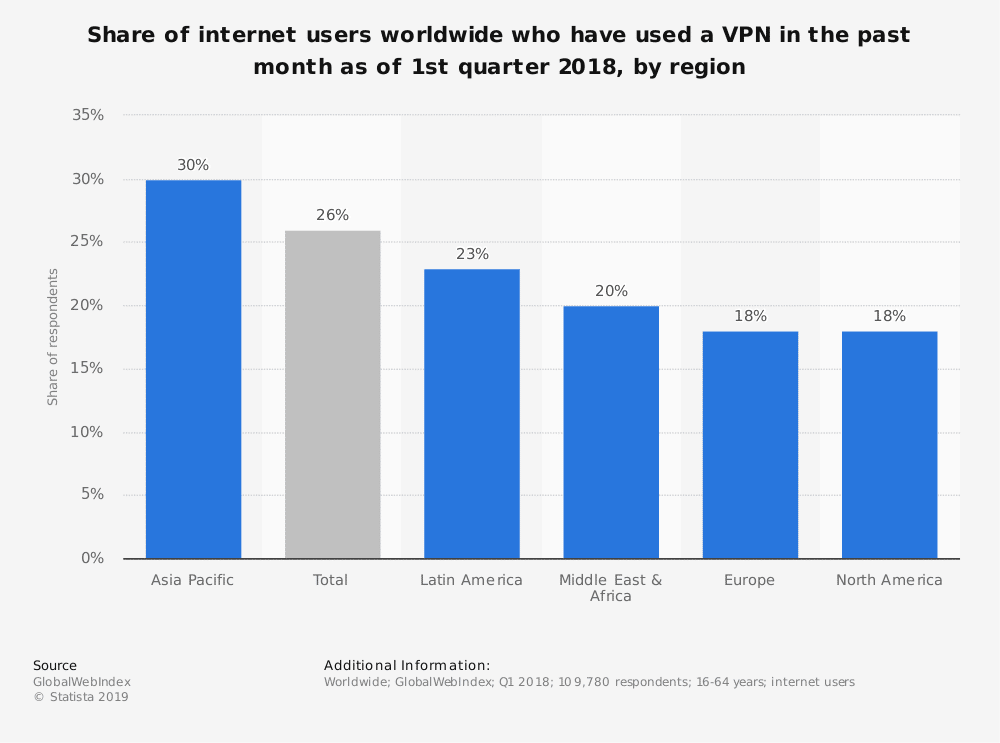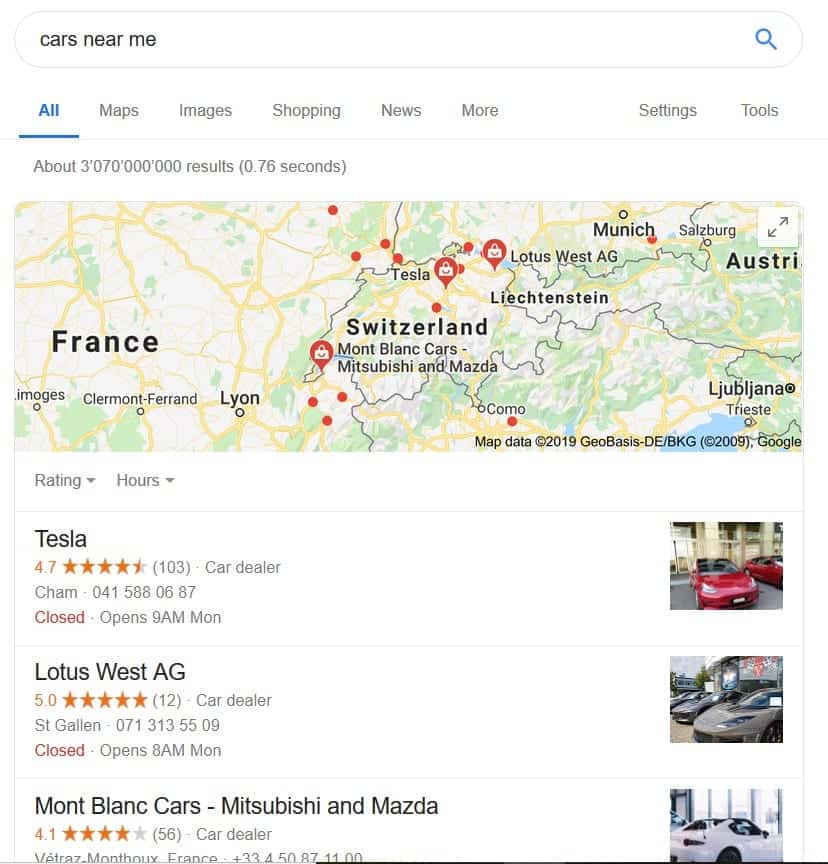Virtual Private Networks (VPNs) are all the rage these days. They improve data security and provide anonymity in an era during which both of those things are in jeopardy. When I found a lifetime VPN subscription for under $40, I decided to try it out. After all, a VPN is a great way to protect data while connected to public networks, such as those in coffee shops or airports.
What is a VPN?
The best description I’ve heard comes from PC Magazine, which states, “a VPN creates a virtual encrypted tunnel between you and a remote server operated by a VPN service. All your internet traffic is routed through this tunnel, so your data is secure from prying eyes. Your computer appears to have the IP address of the VPN server, masking your identity and location.”
If you think VPNs are only used by people doing questionable things on the internet, think again. VPNs are being quickly adopted by anyone interested in protecting their information. In 2018, nearly 18% of North American internet users made use of a VPN at least once during a one-month period (see below).
Another study found that nearly 25% of internet users had used a VPN in the past 30 days.
When nearly one out of every five North Americans (in 2018 – the number is likely higher now) are masking their location, there are huge implications for digital marketing. Here are just a few:
Your YouTube Ads May Be Shown to Irrelevant Sources
If someone is logged into Google, most of the ads and search results they receive will be catered to the location set in the account. If, however, someone is not logged into Google and they’re connected to a VPN, they are delivered results from the location of the VPN to which they’re connected, not their actual location. Chances are, individuals who run VPNs don’t surf the web while connected to Google.
While surfing YouTube from a VPN in Switzerland, I received the following ad:
At the time, I was in Alexandria, VA.
What It Means for Digital Marketing
If your ads are enticing enough, you’ll get good click-throughs. The problem VPNs deliver is that those click-throughs could be coming from anywhere in the world, not just the geographically defined regions you set up in your ad campaign. This potentially means more of your budget will be wasted on unqualified clicks.
Your Google Search Ads Aren’t Necessarily Targeting Your Suggested Geographic Locations
If you’re using geographic limiters for your Google Ads, you may find that those ads are going to people all over the world, or at least people not within your target geographic area. In order to increase speed, many VPN users will likely use VPN servers near their actual location, but not in their actual location. Someone in Washington, D.C., for instance, may connect to a VPN in New York City. That means your local New York City retail store may be getting clicks from a user in Washington, D.C.
What It Means for Digital Marketing
You’re going to waste money on clicks outside your target area. While these clicks will likely be minimal, they could add up to significant money spent to advertise to the wrong people.
Local Search Results Won’t Be Local
While connected to a server in Switzerland, I received the following results for a “cars near me” search:
Again, I was connected from Alexandria, VA.
What It Means for Digital Marketing
Google My Business data on the frequency with which your local listing has been shown will be inaccurate. Because data are so important to digital marketing, this can skew information. This may be especially damaging to businesses in large cities that house VPN servers, such as New York, Los Angeles, London, and Tokyo.
VPNs Ensure that Analytics Data Are Inaccurate
In the past, local businesses with geographic limitations could consider traffic within their service area qualified traffic. All traffic outside that radius was often considered irrelevant. That’s no longer the case.
Below is the data from when I connected to our website, DragonflyDM.com, from a VPN server in Switzerland. We typically serve clients in Maryland, Virginia, or Washington, D.C., but have worked with national clients as well. We have never worked for clients in another country. In this instance, I was connecting to the site from Alexandria, VA, but appeared to connect from Zurich, Switzerland. Most regional U.S. companies would probably overlook traffic from other countries or distant cities, but they could be overlooking legitimate traffic.
Because the average session duration was 0, I tried connecting again the following day from Geneva, finding that that session duration was also 0, despite having spent a few minutes on the site. It appears that VPNs occassionally mask time on site, bounce rate, and pages per session, all of which could significantly skew those numbers downward.
I tested this again from Warsaw and found that the data were tracked correctly in one instance and in several other instances the visits, while appearing from Poland in Realtime viewing, did not track in historical Analytics data.
*It should be noted that Google does a fairly good job of providing localized results when you’re logged in; however, if you are not logged in your results will come from wherever the VPN server is located.
What It Means for Digital Marketing
Data are the lifeblood of any digital marketing campaign. Without accurate geographic data, it will be difficult for companies, especially larger ones, to determine their brand’s true impact on different regions. For local companies, it means that someone coming to your site from a few blocks away could be tracked as international traffic, or visitors from distant cities. Time on site, bounce rate, and pages per visit data could also be inaccurate because 0 time on site, 100% bounce rate, and 0 pages per visit could actually represent someone who spent time on the site and visited numerous pages.
Will This Really Make a Difference in Digital Marketing?
It’s very possible that those who use VPNs don’t click Google or YouTube ads anyway. The very nature of a VPN indicates a distrust in ISPs and anyone else trying to get a hold of information regarding online activity. With that in mind, I conducted a survey of VPN users.
Of 857 respondents to the question “Do You Use a VPN,” 64.6% did not use a VPN, 26.4% preferred not to answer, and 9% used a VPN. Presumably, many of the “prefer not to answer” responses were from individuals who did use VPNs but weren’t willing to admit it.
Those that responded that they did use VPNs demonstrated that over 55% did not click on ads:
That means nearly 45% of VPN users do click on ads. If, based on the first graph in this post, we assume VPN usage is around 20%, and 45% of those people click Google and YouTube ads, we can assume that nearly 10% of ad traffic may be geographically unqualified.
This will likely have a larger effect on local businesses than national businesses as, for the sake of speed, many VPN users may connect to servers within their country, but from a different city than the one in which they’re located.
Digital marketers need to reconsider the relevance of their ad traffic and the reliability of their analytics data. VPN use is only going to increase, and we should be prepared.







